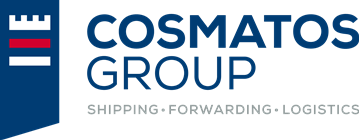It is essential that delivery of cargo is effected only to a duly authorised party. In most cases, it will be the party depositing an original Bill of Lading duly endorsed by the Consignee (if one is named) or the shipper if it is an order Bill of lading.
It is possible that in addition to the endorsements on the Bill of Lading, delivery orders from the last authorised party may continue authorizing through to the party applying for delivery. Also, a party may deposit a Bill of lading where the last endorsement is a blank endorsement (i.e. one where the last authorizing party gives no specific instructions as to whom to deliver, but merely signs against his authorised stamp).
Great care is necessary because the Bill of Lading is a “Document of Title” (i.e. whoever holds it has prima facie title to the goods). To deliver the cargo WITHOUT surrendering the Bills of Lading is a fundamental breach of contract, which precludes the shipping line from pleading any of the limitations or exceptions in the Bill of lading contract. This could render the shipping line liable for the full value of the goods plus any consequential losses.
In addition to ensuring that the party presenting the Bill of Lading has authority to accept delivery of the cargo, the following further action is necessary before delivery can be effected:
It is possible that in addition to the endorsements on the Bill of Lading, delivery orders from the last authorised party may continue authorizing through to the party applying for delivery. Also, a party may deposit a Bill of lading where the last endorsement is a blank endorsement (i.e. one where the last authorizing party gives no specific instructions as to whom to deliver, but merely signs against his authorised stamp).
Great care is necessary because the Bill of Lading is a “Document of Title” (i.e. whoever holds it has prima facie title to the goods). To deliver the cargo WITHOUT surrendering the Bills of Lading is a fundamental breach of contract, which precludes the shipping line from pleading any of the limitations or exceptions in the Bill of lading contract. This could render the shipping line liable for the full value of the goods plus any consequential losses.
In addition to ensuring that the party presenting the Bill of Lading has authority to accept delivery of the cargo, the following further action is necessary before delivery can be effected:
- The Bill of lading must be correctly endorsed
- The Bill of Lading should be cross-checked with the manifest and it should be established that all freight and other charges have been paid
- Goods may only be released to a customer against the Shipping Line’s original Bill of Lading. Any other Bill of Lading, issued for example by a forwarder or feeder operator, as is common in China trade, must be covered by a Shipping Line service Bill of Lading covering the same shipment, with or without other shipment, which is claused to the effect that the goods may be released to the holder of the third party B/L with the number indicated




